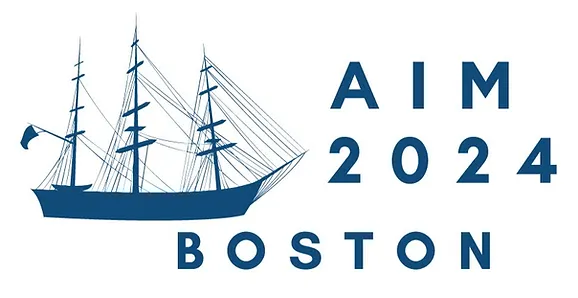
 2024 IEEE/ASME International Conference on
Advanced Intelligent Mechatronics
July 15-19, 2024 | Boston, USA
2024 IEEE/ASME International Conference on
Advanced Intelligent Mechatronics
July 15-19, 2024 | Boston, USA

 2024 IEEE/ASME International Conference on
Advanced Intelligent Mechatronics
July 15-19, 2024 | Boston, USA
2024 IEEE/ASME International Conference on
Advanced Intelligent Mechatronics
July 15-19, 2024 | Boston, USA
|
Sponsors |
|
The IEEE Robotics and Automation Society's objectives are scientific, literary and educational in character. The Society strives for the advancement of the theory and practice of robotics and automation engineering and science and of the allied arts and sciences, and for the maintenance of high professional standards among its members, all in consonance with the Constitution and Bylaws of the IEEE and with special attention to such aims within the Field of Interest of the Society. The Mission of RAS is to foster the development and facilitate the exchange of scientific and technological knowledge in Robotics and Automation that benefits members, the profession and humanity. The Vision of RAS is to be the most recognized and respected global organization in Robotics and Automation. RAS strives to advance innovation, education, and fundamental and applied research in robotics and automation. Robotics focuses on systems incorporating sensors and actuators that operate autonomously or semi-autonomously in cooperation with humans. Robotics research emphasizes intelligence and adaptability to cope with unstructured environments. Automation research emphasizes efficiency, productivity, quality, and reliability, focusing on systems that operate autonomously, often in structured environments over extended periods, and on the explicit structuring of such environments. The Society provides aid in promoting close cooperation and exchange of technical information among its Members and Affiliates, and to this end holds meetings for the presentation of papers and their discussion, sponsors appropriate periodicals and special technical publications, and through its committees studies and provides for the needs of its members and affiliates. The IEEE Industrial Electronics Society through its members encompasses a diverse range of technical activities devoted to the application of electronics and electrical sciences for the enhancement of industrial and manufacturing processes. These technical activities address the latest developments in intelligent and computer control systems, robotics, factory communications and automation, flexible manufacturing, data acquisition and signal processing, vision systems, and power electronics. The Society continually updates its program of technical activities to meet the needs of modern industry. The Field of Interest of the IES shall be confined to the theory and applications of electronics, controls, communications, instrumentation, and computational intelligence to industrial and manufacturing systems and processes. The vision of the IES is to advance global prosperity by fostering technological innovation, enabling members' careers and promoting community worldwide. The IES promotes the engineering process of creating, developing, integrating, sharing, and applying knowledge about electro- and information technologies and sciences for the benefit of humanity and the profession. The ASME Dynamic Systems and Control Division provides a national and international forum to evaluate, discuss, analyze, and publish new technical results in the field; stimulate and encourage research and education innovations; enhance manpower in research and engineering education in dynamic systems and control; and lead in setting directions for the field in the future. It encompasses all aspects of the modeling, design, and control of physical systems involving forces, motions, the dynamics and control of mechanical, chemical, biological, and human-related systems, plus transportation, energy, robotics, manufacturing, processing, environmental, computational, and man-machine systems. Dynamic Systems and Control is a fast growing and pervasive engineering field. There is rarely an engineering endeavor that does not involve the careful control, analysis, and/or synthesis of physical, dynamic systems. Be it fluids, thermodynamics, heat transfer, machine design, or materials engineering, systems and control contributions are essential. The Dynamic Systems and Control Division (DSCD) is one of 36 technical divisions in the American Society of Mechanical Engineers (ASME). The mission of the Division is to provide a national and international forum to: evaluate, discuss, analyze, and publish new technical results in the field; stimulate and encourage research and education innovations; enhance manpower in research and engineering education in dynamic systems and control; and lead in setting directions for the field in the future. The Division has actively developed and broadened its scope since its organization in 1943 from instruments and regulators, to automatic control, to coverage of all aspects of the modeling, design, and control of physical systems that involve forces, motions, and/or the flow of energy or material. In 1978 the name was changed from the "Automatic Control Division" to the "Dynamic Systems, Measurement and Control Division." |